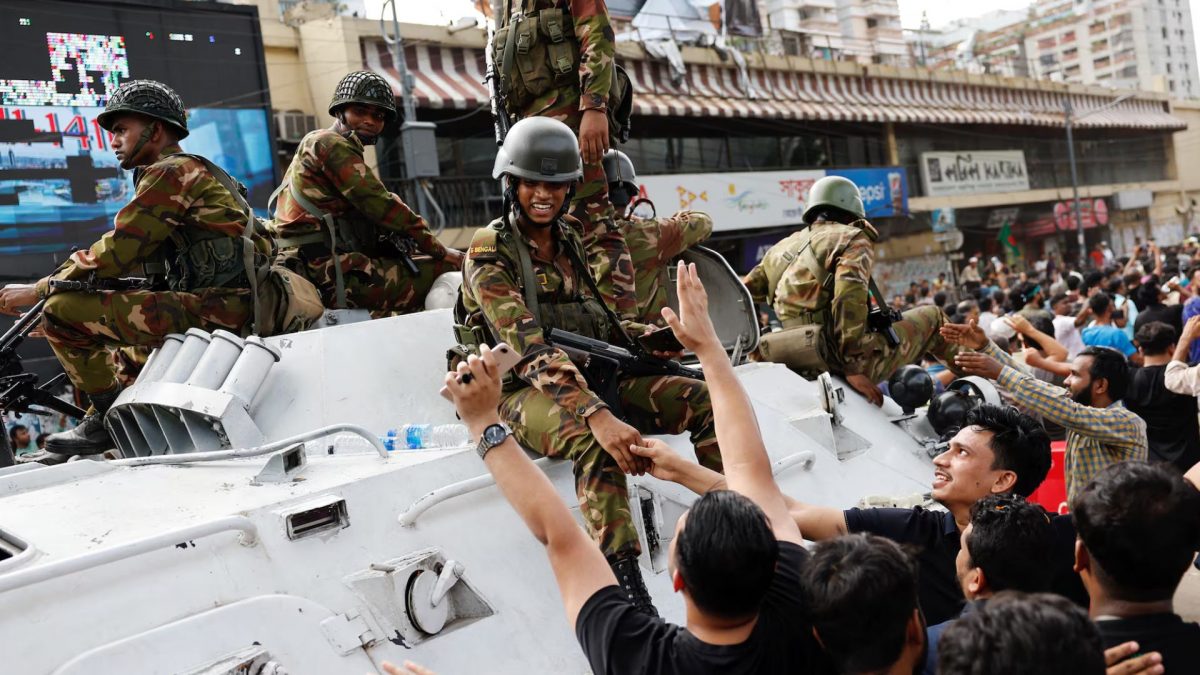The Bangladesh Army, which is keeping the country afloat amid a political crisis, is faced with a new challenge: the emergence of multiple power centres, each with its own general.
A report by the Economic Times cited people aware of the shifting dynamics in the Bangladesh army as saying while the military is not witnessing a full-blown crisis yet, it is certainly facing challenges from pro-Awami League and Islamist factions.
After the ouster of former Bangladeshi prime minister Sheikh Hasina in August 2024, the army played a pivotal role in stabilising the country and under the leadership of General Waker-uz-Zaman it facilitated the creation of an interim government led by Nobel Laureate Muhammad Yunus.
Who are the key players?
Although army chief Zaman is still heading the force, two other power centres have emerged in the army, according to ET.
One of these power centres is being chaired by Lt. General Mohammad Shaheenul Haque – Commandant, National Defence College - Mirpur Cantonment, Dhaka. Haque enjoys the support of pro-Awami League Major General Muhammad Moin Khan of the Ninth Division of the Bangladesh army.
Lieutenant General Haque served as the parade commander for the Victory Day Parade in 2022 and previously held the position of Chief of General Staff at the Army Headquarters. Commissioned into the Corps of Infantry in July 1989, he was awarded the prestigious ‘Sword of Honour’ for his outstanding all-around performance at the time of his commissioning. His career also includes serving as the Director of the Weapons, Equipment, and Statistics Directorate within the General Staff Branch at Army Headquarters.
Leading the other faction is Lt General Mohammad Faizur Rahman, the former head of the Bangladesh army’s military intelligence, DGFI. The sources told the publication that Rahman is in touch with student leaders including Yunus’ adviser Mahfuz Alam.
Impact Shorts
More ShortsThere are rumours that General Rahman was involved in a conspiracy to remove the Bangladesh President while General Waqar-uz-Zaman was abroad. It is also alleged that Lieutenant General Rahman may be part of a plot to oust the Army Chief if Chief Adviser Md Yunus resigns and leaves Dhaka in the coming months.
How B’desh is not new to coups
In the 1980s, Bangladesh experienced significant political upheaval marked by military coups and counter-coups within its army.
The country’s first Prime minister Sheikh Mujibur Rahman, Hasina’s father, was assassinated along with most of his family members in a military coup that brought in a long period of military rule. Two more coups in the same year ended with General Ziaur Rahman seizing power in November.
Ziaur Rahman was assassinated by rebels who stormed into a government guest house in Chittagong City where he was residing. The violence was believed to be the act of a small group of army officers, but the army itself remained loyal and suppressed the rebellion.
Rahman’s successor, Abdus Sattar, was ousted in a bloodless military coup led by Hussein Muhammad Ershad, who took over as chief martial law administrator and later assumed the office of president.
With inputs from agencies


)

)
)
)
)
)
)
)
)



